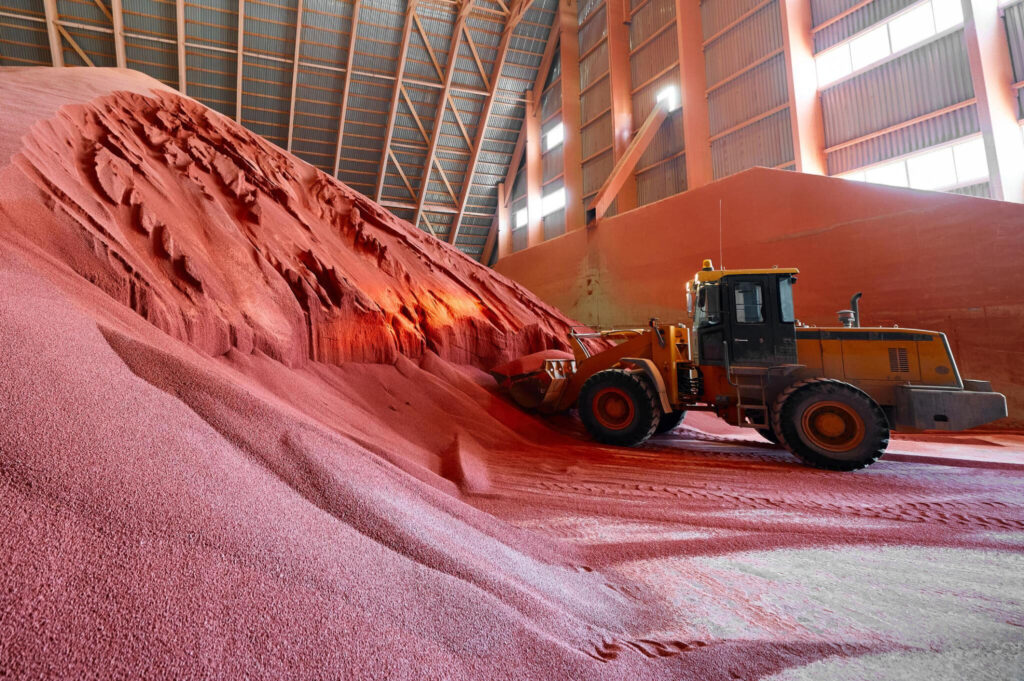Mineral Transport

Experience the future of mineral transport and logistics with our innovative solution. Utilizing advanced technology and strategic partnerships, we optimize every step of the supply chain, from extraction to delivery. Our platform offers real-time tracking, predictive analytics, and risk management tools to ensure efficiency and safety at every stage. With a focus on sustainability and compliance, we minimize environmental impact and regulatory hurdles, enhancing both operational and reputational integrity. By leveraging our expertise and global network, clients gain a competitive edge, reducing costs, improving reliability, and maximizing profitability. Join us in shaping the future of mineral transport and logistics.
The challenges faced by Mineral Transportation managers have been amplified in recent years as their need has evolved beyond the traditional perspective of guaranteeing capacity while complying with cost and service level targets.
Mineral Transportation must now have a more strategic and active role in your value proposition, providing sustainability and resilience to the business while still complying with ever tighter targets for cost and service level.
• The service level challenge: Mineral Transportation is a relevant enabler of your business’ service level strategy, directly impacting important attributes such as lead time and on time delivery performance. Companies that excel in Mineral Transportation typically count on suitable models and carriers with proper management;
• The cost challenge: Mineral Transportation is usually a relevant cost element within the supply chain, and thus is under continuous pressure to be minimized. Companies need to constantly seek unit cost reductions by (re)negotiating, opening tenders, refining the make or buy strategy, increasing productivity and increasing asset occupancy and turnover;
• The capacity challenge: Mineral Transportation capacity is finite and so Mineral Transportation managers need to strike the perfect balance between adequate and flexible capacity. In markets with high growth rates or seasonality, lack of Mineral Transportation is an important competitiveness issue. Some tactics regarding carrier contract management, make vs buy balance and integration with commercial policies can help to make this challenge more manageable.
• The sustainability challenge: Mineral Transportation has a significant impact on a company’s sustainability position, both from environmental (due to CO2 emission issues) and social (due to number of workers involved and communities affected by traffic) perspectives. This makes it an increasingly relevant topic for designing and operating Mineral Transportation models.
• The last mile and omnichannel challenge: With B2C booming due to e-commerce growth, the last mile battleground means that Mineral Transportation plays a key differentiating role. This goes beyond just delivering on time – it is now a representation of the brand face to face with the consumer, where providing accurate delivery information (tracking and traceability) and being active in solving delivery issues is key to satisfaction.
• The resilience challenge: In any logistics crisis, the ability to recover or put in place additional Mineral Transportation capacity is key, such as with warehouse fires, carrier strikes or fuel shortages for example.
1. Service Level Challenge: Mineral transportation directly impacts crucial attributes such as lead time and on-time delivery performance, necessitating suitable models and carriers with effective management.
2. Cost Challenge: Mineral transportation represents a significant cost element within the supply chain, requiring continuous efforts to minimize costs through negotiation, tendering, productivity enhancement, and asset optimization.
3. Capacity Challenge: Striking a balance between adequate and flexible capacity is crucial, especially in high-growth or seasonal markets, requiring effective carrier contract management and integration with commercial policies.
4. Sustainability Challenge: Mineral transportation significantly impacts a company’s sustainability position, posing environmental and social concerns related to CO2 emissions and the welfare of workers and communities affected by traffic.
5. Last Mile and Omnichannel Challenge: With the rise of e-commerce, last-mile delivery has become a key differentiating factor, emphasizing accurate delivery information and proactive issue resolution to enhance customer satisfaction.
6. Resilience Challenge: The ability to recover or augment mineral transportation capacity during logistics crises, such as warehouse fires or carrier strikes, is essential for maintaining operational resilience.
1. Map of Opportunities: Assessing competitiveness, identifying opportunities for cost reduction or productivity enhancement, and evaluating alignment with business strategy and market needs.
2. Revised Mineral Transportation Strategy and Model: Developing appropriate transportation models, asset strategies (make or buy), carrier relationships, modal mixes, productivity enhancement strategies, organizational structures, and technology integration plans.
3. Implementation: Executing the new model, integrating new carriers and technologies, ensuring business continuity, and developing contingency plans to mitigate risks.
Our approach yields numerous benefits for our clients, including cost reduction, improved service levels, increased productivity, strategic goal alignment, enhanced management capabilities, stronger supplier relationships, and higher ethical standards.
Integration brings extensive industry experience in mineral transportation, serving clients across various sectors, including heavy industry, consumer goods, retail, and e-commerce, in numerous countries worldwide. Our expertise enables us to deliver tailored solutions that drive operational efficiency and competitiveness for our clients.
